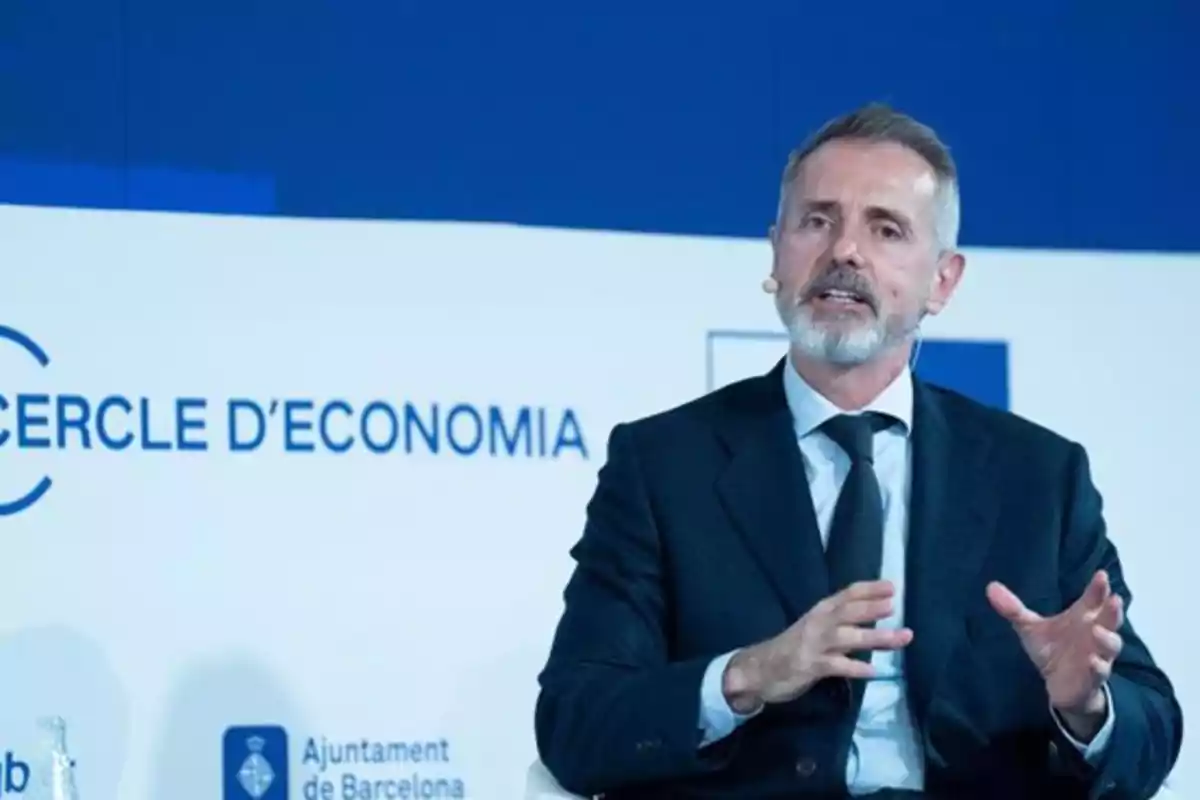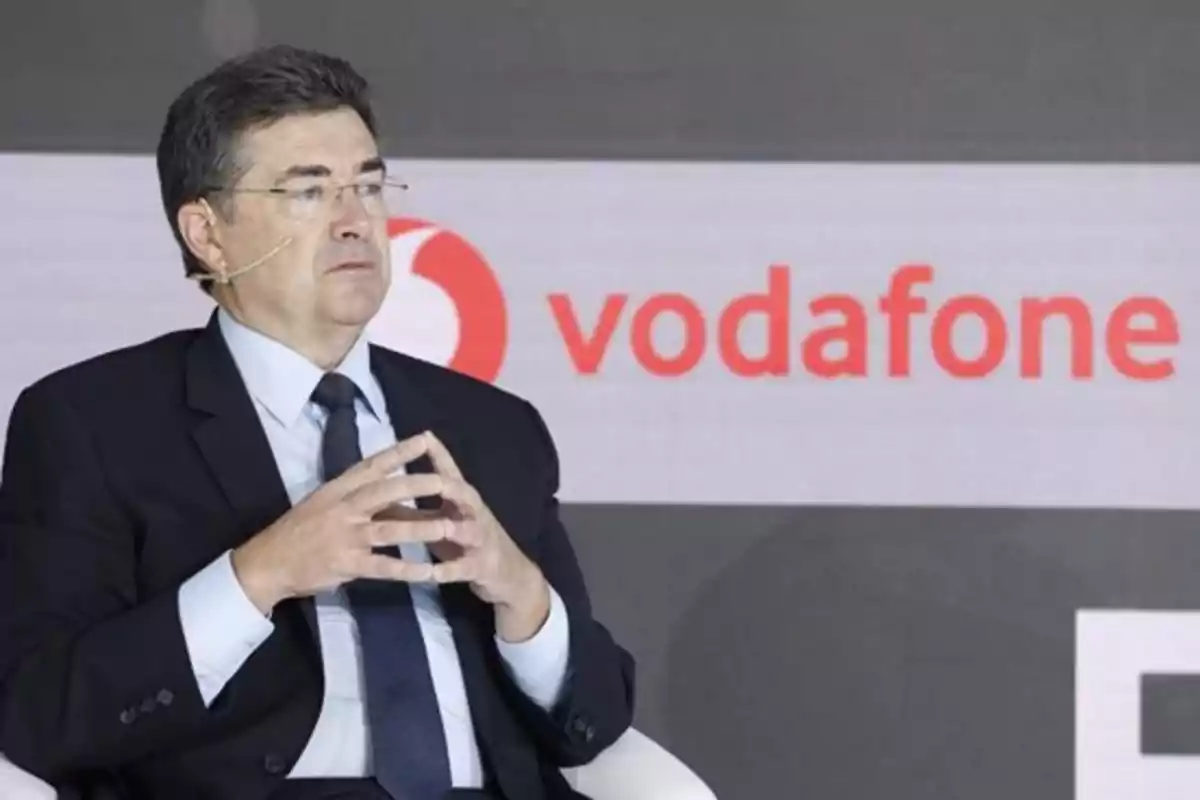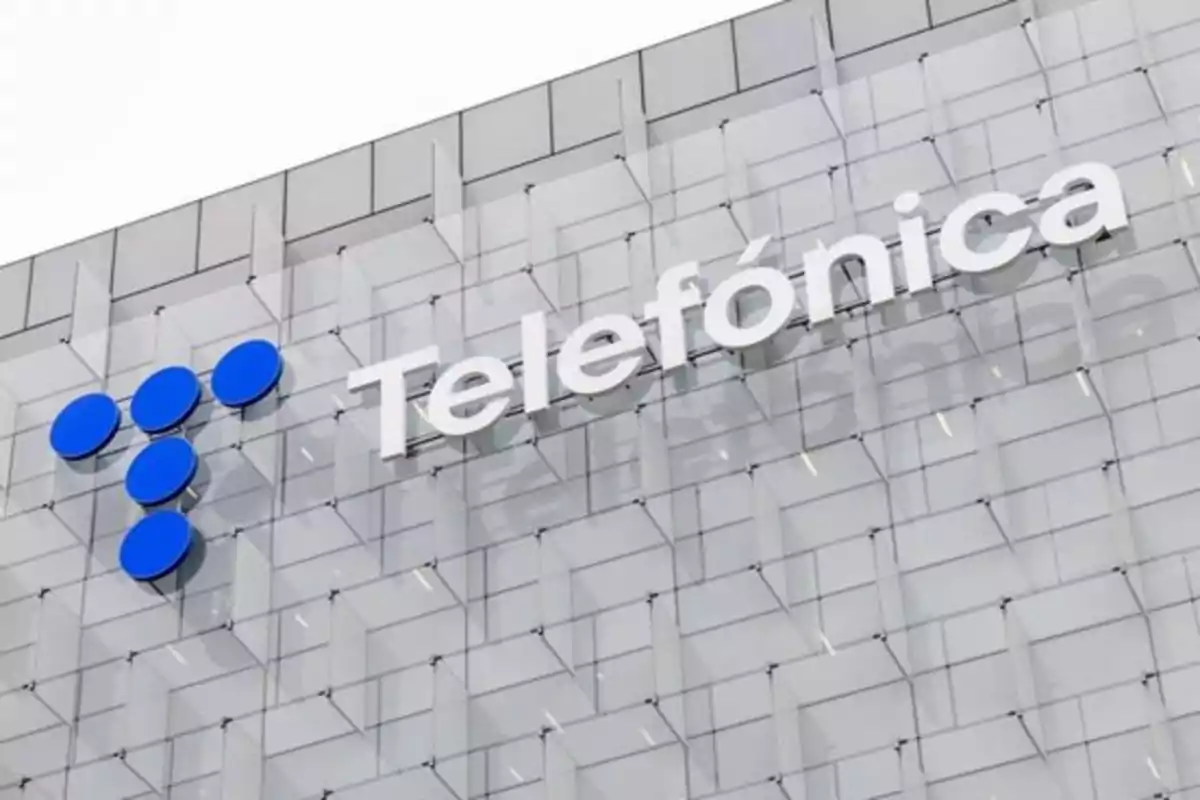
Telefónica reaches out to Vodafone after La Moncloa's rejection to explore mergers in Europe
Marc Murtra would face competition authorities and debt exceeding €27 billion
British fund Zegona Communications is becoming increasingly optimistic about the evolution of one of its main assets: Vodafone España. Since the Spanish subsidiary of the British multinational came under its control last year, Zegona's share price on the London Stock Exchange has shown a clearly positive trend. The reason is clear: Vodafone España represents practically the entire value of the fund, so its growth is directly reflected in the investment firm's stock market performance.
This optimism is largely due to the internal transformation process that Vodafone España has been undergoing since José Miguel García, known in the sector as "the telecom shark," took the helm of the project. The millionaire García is a well-known figure for his ability to revitalize operators and gain market share. He already showed his skills during his time at Jazztel, Euskaltel, and MásMóvil. Under his leadership, Vodafone has started a "reset" process aimed at aggressively attracting new customers.
But there is another element that adds appeal to the case: the interest that Vodafone arouses in Telefónica, the historic Spanish operator. Although they are direct competitors, current market conditions could lead to a consolidation move. Telefónica would act as the potential buyer of its rival. For this, Murtra would need the relevant approvals from the Competition Authority and would have to tame the debt of the company he chairs.
Telefónica changes course: European focus and strategic caution
At the head of Telefónica is now Marc Murtra, who has set a very clear strategic direction since his arrival. His plan is to leave behind the company's fragmented presence in Latin America and focus efforts on consolidating its position within Europe. This shift has materialized in several divestments, such as the sale of subsidiaries in Argentina and Peru. He is putting the emphasis on the European continent as the core of the company's future.
In his first General Shareholders' Meeting, held recently, Murtra made it clear what his obsession will be during his term: "Europe, Europe, Europe." His initial intention, as he explained, was ambitious: to merge Telefónica with another major European operator to create a telecom company of continental scale. However, this plan has encountered significant resistance.

On one hand, the Spanish government, from La Moncloa, has expressed concern about the possibility of losing control of a company considered strategic. The "Spanishness" of Telefónica is seen as a crucial element for national technological sovereignty. On the other hand, part of the old internal guard would also view any potential merger with suspicion. The painful embers of operations such as Endesa, which ended up in the hands of Italian company Enel, still remain. The fear is that a European merger would ultimately dilute Telefónica's national character in favor of foreign interests.
Faced with this scenario, Murtra has chosen to redirect his strategy toward the domestic market. His new objective: to strengthen Telefónica's position in Spain by acquiring one of its local rivals. In this regard, Vodafone España and Digi appear as the main candidates for a potential acquisition.
Financial obstacles and memories of the past
Nevertheless, carrying out such an operation is not without difficulties. First, Telefónica's financial situation imposes certain limits. At the end of 2024, the company had accumulated debt exceeding €27 billion. This significant figure conditions any major corporate move.
This level of indebtedness, although high, is far from the historical highs reached during César Alierta's presidency. At that time, the company recorded liabilities above €58 billion. Subsequently, his successor José María Álvarez-Pallete focused on cleaning up the company's accounts. He managed to reduce the debt by more than €26 billion in less than a decade. However, this financial discipline came at a cost: Telefónica failed to reinvent itself at the pace set by new digital dynamics. Therefore, its stock market valuation and investor appeal suffered.

Today, the company faces a strategic crossroads. Consolidating its position in Spain by acquiring one of its competitors could grant it greater operational profitability. But this carries the risk of inflating its debt again, something many shareholders and analysts view with caution.
Consolidation yes, but with economic rationality
During his speech at the first meeting he chaired, Murtra also addressed the structural challenges facing the sector in Europe. He pointed out that the high fragmentation of the market, combined with especially strict regulation, has prevented the emergence of European tech giants capable of competing with American and Asian leaders.
"Sector consolidation must start within countries. If not, it won't have economic rationality," he stated. "There won't be true European consolidation without a prior one at the national level," he added. For the executive, Europe's technological autonomy depends on having stronger operators. Telefónica wants to be one of them.
Despite the general consensus on the diagnosis, internal doubts persist. Although some industry veterans share Murtra's vision, they also fear that a merger with a foreign operator could mean a loss of Spanish influence in a highly strategic sector.
In any case, what is clear is that the telecommunications map in Spain, and in Europe, is about to experience a new phase of transformation. Telefónica wants to be part of the change.
More posts: